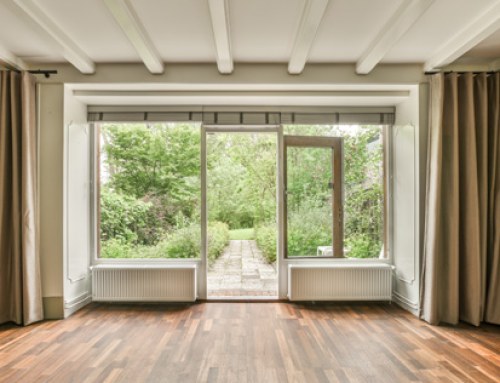In Season 4 Episode 6 of the REAL Collective Podcast, Brendan McKeigan goes through a non-exhaustive list of some of the costs that you may have not considered while shopping for a home. When buying a home, whether it’s your 1st or your 5th, it’s always important to be prepared with extra funds so that you don’t end up being surprised.
Here we go…
1. Deposit: A deposit on your new home is due within 24 hours of your offer being accepted (in most cases), and due to the listing brokerage (in most cases). Even if you do have conditions on your offer a deposit is required to show good faith and if the conditions fall though, then that money will be returned. Your REALTOR® will guide you through this process as this all depends on your individual circumstances. Often, these funds are provided as a money order or a cheque, so, this is money that you should have ready to go in a saving or chequing account (and not wrapped up in investments or RRSPs). You don’t want to lose out on the house of your dreams because the funds were not available in time for your deposit. Lately, $10,000 is the norm, but it ultimately does depend on the purchase price of the home and what your REALTOR® recommends.
2. Home Inspection: These are becoming more prevalent with the current market conditions and can cost approximately $500. Often, this is a worthy investment and can give you significant insight into the home that you are purchasing.
3. Lawyer Fees: A lawyer must review your purchase or sale to make sure their no liens or encumbrances on the property you are purchasing, along with other very important aspects of the sale. You will want to make sure that you double your budget if you are selling and buying a home. A typical lawyer fee can range from $1500 to $3000 depending on who you are working with and your circumstances.
4. Land Transfer Tax: This is a tax that you must pay when you transfer ownership of a property to yourself. If you are a first-time home buyer, sometimes you can be eligible for tax credits or incentives. Reach out if you’d like to learn more!
5. Property Tax: If the previous homeowner paid for the entire year, you’ll have to cover what is left in that year. The lawyer handles this and will instruct you accordingly!
6. Tarion Warranty: If you are purchasing a brand-new home, you must invest in a Tarion Warranty and it’s typically included in the purchase price of the home. This warranty protects you as a homeowner from defects that may occur with your new home. You have various responsibilities to fulfill to be covered, such as, a 30-day check list. If you sign up for “My Home”, you can do it all digitally and the checklist gets submitted to the builder. If you are missing any info, call Tarion and they assist you. This investment is something that will protect you in the long run!
7. Utility Hookups: Moving in, you will need to ensure that you hook up services such as: gas, water, hydro, etc. So, make sure you put some money aside for those hookups!
8. Moving: The cost to physically move is variable depending on your approach. Are you hiring a moving company or going the pizza and beer route? Moving companies will quote you, some of them will come to your house so that they are as accurate as possible. For example, to move Brendan’s 3-bedroom home, the cost was about $3,000 (give or take). That’s for them to come in and take all your boxes and furniture and to carry them into whatever room you would like in your new home. It’s full service.
9. Home Insurance: This it is a legal requirement to buy a home and you must prove that you have it in place with your lawyer. It’s important to shop around and find what suits you best!
10. Internet: This may be on the more important side, and many people don’t install cable or a landline anymore (a landline is a physical line that streams into your house and gives you a dial tone on your hand held phone😉 – for some younger readers that may not know.) At times, individuals need to come to your house to install your line. Often you will need to either buy or rent a modem, so this is a bit of an extra cost. Make sure you shop around, google who services your area and call the company to make sure they actually service that area.
11. Grocery Shopping: Since you usually you try to eat as much as you can out of your fridge before you move, you may really need to stock up once you are in your new home. Not sure why but, it can be like supermarket sweepstakes just dropping stuff in the cart. Maybe it’s not a bad idea to save up your optimum points for a year to help with this cost!
12. Multiple Runs to Home Depot: It seems that there is always something that you will need here as your new home is often not equipped the way you like it just yet!
13. Ikea: There is usually always an Ikea room in every home. They seem to have everything that you are missing and a trip here is usually a must.
So, to sum it all up, make sure you are prepared financially before you start looking for a home! If you are looking for recommendations for any of the services mentioned in this article, be sure to visit our partners page.
For more insights on costs beyond the purchase price, check out the full podcast episode (included in this blog article) or for other valuable real estate related tips, you can check out the REAL Collective Podcast on iTunes, Spotify or YouTube.





